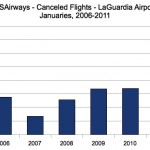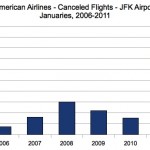With the acquisition of my iPad has come an exploration of the world of ebooks and Kindle software. I had resisted previously–I do enough digital reading as it is, and I like the certainty and feel of printed words on bound pages–but in adding the large screen to the smaller one of my phone, my defenses against at least trying it out started to crumble. I can say now that I’m not sorry; at least, not entirely.
First I discovered Barry Eisler’s first short story “The Lost Coast,” featuring Daniel Larison, a wayward special ops agent from his most recent novel, “Inside Out.” Eisler has become even more famous recently for walking away from a big, traditional publishing deal in order to pursue the world of self-publishing aggressively. “The Lost Coast” was a good read, and Eisler clearly has a talent for story telling that works just as well in a short format.
Larison, on the run from his former bosses, is skulking around the quieter bits of California, keeping his own company as much as possible. In “Inside Out,” Eisler cast Larison is gay, an element one might not have imagined or predicted–but also one that he makes seem as natural and normal for a special ops agent as … well, as it probably is in real life. Here this is the twist on which the plot turns, and the story again marries Eisler’s traditional strengths of combat strategy and martial arts with his liberal politics. However, where “Inside Out” got preachy, “Lost Coast” just knuckles down, literally and figuratively. A couple bits were more gruesome than expected, but this story was so gripping that I wound up installing the Kindle app on my iPhone just so I could keep reading.
That led me to “Paris is a Bitch,” Eisler’s next short story, which picks up the tale of the half-Japanese / half-American assassin John Rain and his Mossad-agent girlfriend Delilah. Rain is the focus of an extended (and terrific) series by Eisler, and it is one of the author’s singular skills that he has made Rain a sympathetic figure: one cannot help but cheer him on, despite his deadly assignments. Here we find John Rain employing his traditionally well-tuned antennae to resist an attack, and deploying his own martial arts and combat strategies right on time. We also gain insight on aspects of Rain’s emotional side that Eisler has been slowly teasing out over the last couple of books. If slightly less visceral than “The Lost Coast,” it is nonetheless entertaining and a must-read for Rain fans.
Both ebooks include chapters from Eisler’s new novel-in-process, “The Detachment,” which will bring Rain and Larison together with a few other characters and, already from the first three chapters, it’s clear it will be a killer thriller, all puns intended. My only regret is about the ebook format: as digital short stories, I don’t have them available to put on my shelf next to the other Eisler novels. If that sounds like a small complaint in this context well, yes, it is. But as a collector of books, I like having more than a mere virtual possession of the things I read. Perhaps some day Eisler will release an actual book of his short stories.
***
Print isn’t the issue with the longer book I read on my iPad, Lee Goldberg’s entertaining story “The Man With The Iron On Badge.” For any fan of John D. MacDonald’s series of novels with Travis McGee, or any devout followers of 70s-era detective TV shows, this story (also available in print) is a must. But I will say that one character that came to mind repeatedly (though unreferenced by Goldberg) was Lawrence Block’s delightful Chip Harrison. Goldberg seems to be channeling a similar kind of late-adolescent delight in watching his detective-obsessed Harvey Mapes become a man. No matter what format you choose, this story is fun.





